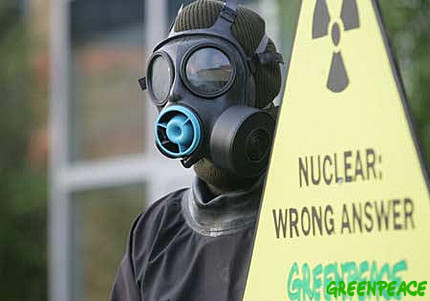environment
Bolivia's Pablo Solon: We need 'a global movement to defend Mother Earth'

Bhopal: Corporate genocide, appeasement of imperialism, environmental hypocrisy

By Kavita Krishnan
July 2010 -- Liberation -- More than 25 years after the infamous Bhopal gas disaster, the verdict of a trial court in Bhopal is nothing but a cruel mockery of justice. With charges already diluted by the Supreme Court of India, the June 7 trial court verdict could only be a formal burial of justice. Not only does the verdict insult the victims of one of the world’s worst industrial disasters by letting off, either scot-free or with a ridiculously light sentence, the mighty CEOs who were the chief perpetrators, it amounts to an assurance to multinational corporations that they will enjoy total impunity in India even when their negligence and violations of regulations leads to the loss of thousands of Indian lives and injury to several thousand more.
On December 2-3, 1984, 40 tonnes of methyl isocyanate (MIC) leaked out of the Union Carbide Corporation’s pesticide plant in Bhopal, exposing more that 5,000,000 people to the toxic fumes. As many as 25,000 people have died as a result, and hundreds of thousands suffered irreversible damage to their health. The poison in the soil and water continues to affect future generations.
Michael Lebowitz: `We must choose socialism over capitalist barbarism'
Michael Lebowitz was interviewed by Srećko Horvat during the Subversive Film Festival and
Bolivia’s mining dilemmas: Between Mother Earth and an ‘extraction economy’

By Federico Fuentes, Cochabamba
May 15, 2010 -- The tremendous success of the April 19-22 World People's Summit on Climate Change and Mother Earth Rights held in Cochabamba, Bolivia, has confirmed the well-deserved role of its initiator — Bolivia's President Evo Morales — as one of the world’s leading environmental advocates.
Since being elected the country’s first Indigenous president in 2005, Morales has continuously denounced the threat posed by the climate crisis and environmental destruction. Morales has pointed the figure at the real cause of the problem: the consumerist and profit-driven capitalist system.

The following documents were also adopted by the World People’s Conference on Climate Change and th
Can capitalism fix climate change?
By Simon Butler
April 14, 2010 -- Albert Einstein defined insanity as doing the same thing over and over again and expecting different results. It has taken capitalism about 250 years to generate enough waste and pollution to press dangerously against nature’s limits. With such a damning record, there should be no grounds to expect a different outcome in the future.
Yet the mainstream discussion about how to tackle the climate crisis still assumes that, this time around, capitalism can be made sustainable.
In an April 3 Sydney Morning Herald piece arguing for capitalists to take a leading role in resolving the climate crisis, Paddy Manning said it “was an article of faith for this column” that a free market could respond effectively to the challenge of climate change. But, struggling to come up with Australian capitalists responding positively to the challenge, he was forced to admit: “Faith is needed, because climate change is proof of colossal market failure.”
Photo essay: `Stop the coal rush!' -- people's blockade halts exports from world's biggest coal port
Ship movements cancelled at the world's biggest coal port, Newcastle (Australia) -- March 28, 2010 from jagath dheerasekara on Vimeo.
Photo essay and story by Jagath Dheerasekara
March 28, 2010 -- Newcastle, Australia -- A mass community protest at the biggest coal port in the world, Newcastle, succeeded in preventing coal ship movements all day. Hundreds of peaceful protesters occupied the harbour from 10 am.
Bolivia: Ambassador Pablo Solon on why thousands will attend World People's Climate Summit
Pablo Solon, part 1. Parts 2 and 3 below.
April 11, 2010 -- World People’s Conference on Climate Change and the Rights of Mother Earth via Climate and Capitalism.
Capitalism and food: Let them eat junk

An interview with Rob Albritton
March 2010 -- Rob Albritton’s Let Them Eat Junk: How Capitalism Creates Hunger and Obesity (2009), published by Arbeiter Ring Press in Canada and Pluto Press in the UK, offers a welcome and urgently needed analysis of “how the profit fixation of capital has led us deeply into a dangerously unsustainable system of food provision, a system that totally fails when it comes to distributive justice and to human and environmental health” (p. 201). His analysis takes us inside capitalism and shows how its “deep structures” manage our agricultural and food systems in irrational ways.
Socialist Project’s Relay magazine recently asked John Simoulidis to interview Robert Albritton about his book and current global struggles to address the failures of our agriculture/food system. Posted at Links International Journal of Socialist Renewal with permission.
Why James Hansen is wrong on nuclear power

By Renfrey Clarke
April 8, 2010 -- “When the facts change, I change my mind. What do you do, sir?” Attributed to economist J.M. Keynes, that retort has always been good advice. Now that carrying on with “business as usual” greenhouse gas emissions has been revealed as a road to disaster, should environmentalists change their minds on nuclear power?
To be sure, the dangers of the nuclear industry have not gone away. A major nuclear war, by creating “nuclear winter” conditions, would end most life on Earth. Humanity, however, has managed the threat of nuclear war in the past, and the chances are that we will continue to do so.
If thousands of nuclear power reactors were in operation, reactor accidents would be frequent enough that they would almost stop being news. But deaths would probably be few, and other losses would be relatively minor compared to the dead oceans and scorched grainlands of the greenhouse future.